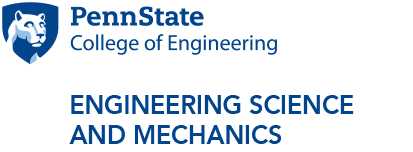Structural and Human Health Monitoring
Structural Health Monitoring
Our research group works in the general area of structural health monitoring (SHM), which is continuous or autonomous monitoring of the structural integrity of systems, structures, and materials, and any subsequent intervention.
SHM is a vital technology for reliability critical systems. There are four intended outcomes of SHM: maintain safety, improve asset readiness for service, decrease overall life cycle costs, and spur a paradigm shift in design.
Our researchers focus on using ultrasonic-guided waves to detect, locate, and classify damage, as well as estimate the extent of damage. This information can be used to shift from schedule-based maintenance to condition-based maintenance, and to predict remaining useful life.
SHM is extremely multidisciplinary, requiring us to innovatively synthesize solutions based on knowledge of material behavior, degradation, and failure; propagation of ultrasonic waves in waveguides; finite element analysis; sensory materials like piezoelectrics, transducers, and arrays of transducers; signal processing and data analysis; damage visualization and pattern recognition. In addition, we research and develop solutions for the allied field of nondestructive evaluation and testing.
Applications for our research are abundant and diverse, including, for example, aircraft, power generation equipment (turbines, pumps, gear boxes), energy distribution systems, pressure vessels, bridges, pavement, buildings, ships, and railroads.
Key Faculty:
Recent Research Projects:
- Delaminations in composite materials
- Degradation of adhesively bonded joints
- Characterization of fatigue cracks near fastener holes
- Development of optimal transducers
- Real-time phased arrays for ultrasonic beam steering
- Tomographic imaging
Current Research Thrusts:
- Nonlinear ultrasonic guided waves for microstructure characterization in order to provide early indication of material degradation
- The development of air-spray deposition of piezoelectric transducers for ultrasonics-based nondestructive inspection and condition monitoring in harsh environments
- Laser ultrasonics for nondestructive testing and process control in manufacturing environments
Human Health Monitoring
Our human health monitoring research focuses on structural design and manufacturing of wearable tattoo electronics that integrate with human physiology to provide continuous monitoring of vital signals and timely delivery of treatment.
Key Faculty:
Research Areas
- Advanced Materials and Devices
- Applied Mechanics and Biomechanics
- Brain Science and Neural Engineering
- Dynamic Systems, Acoustics, and Vibrations
- Emerging Manufacturing Processes for Materials, Tissues, and Devices
- Energy Infrastructure, Storage, and Devices
- Multiscale and Multiphysics Modeling, Computational Analysis
- Nanoscience, Bionanoscience, and Engineering
- Optoelectronics, Photonics, and Lasers
- Structural and Human Health Monitoring





